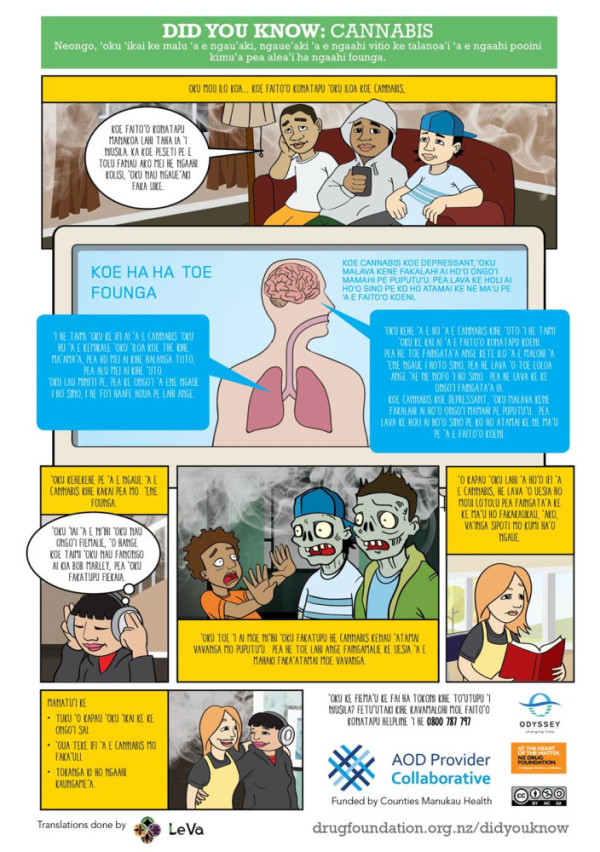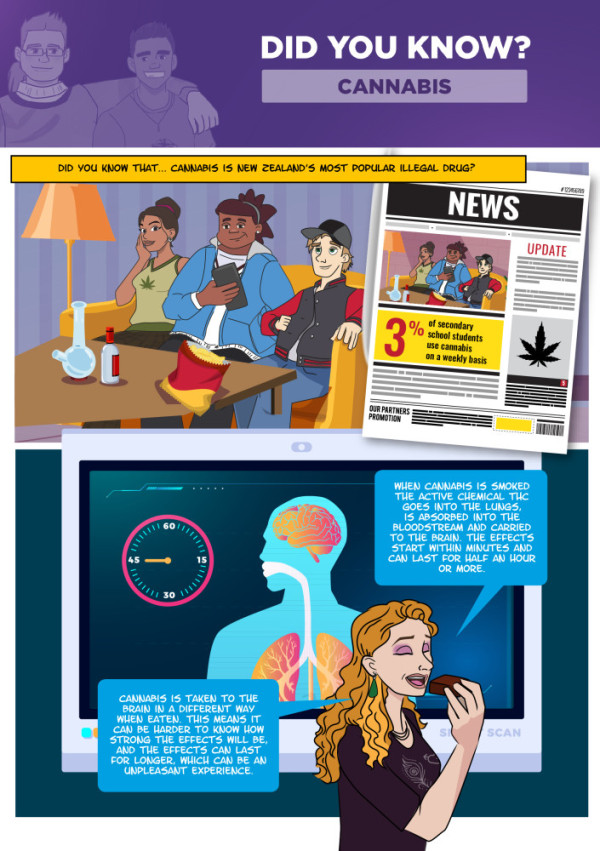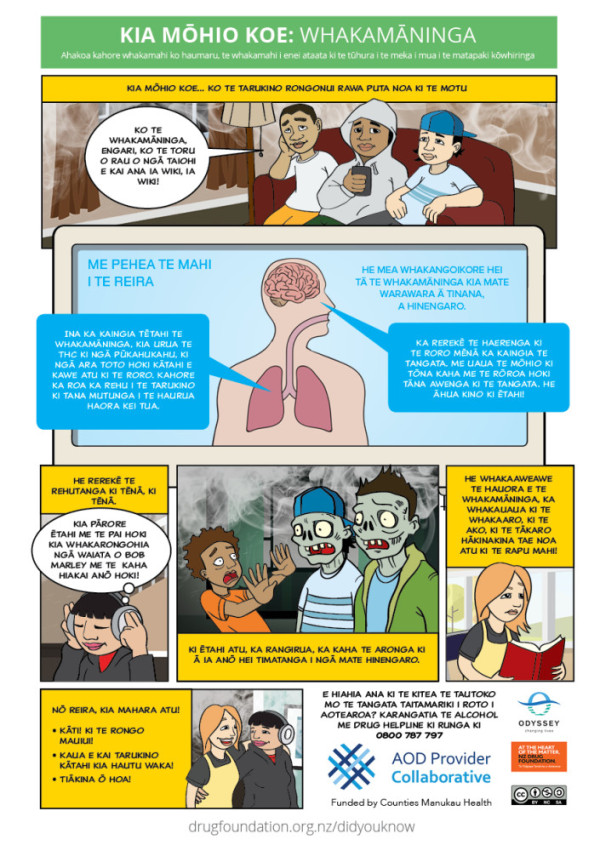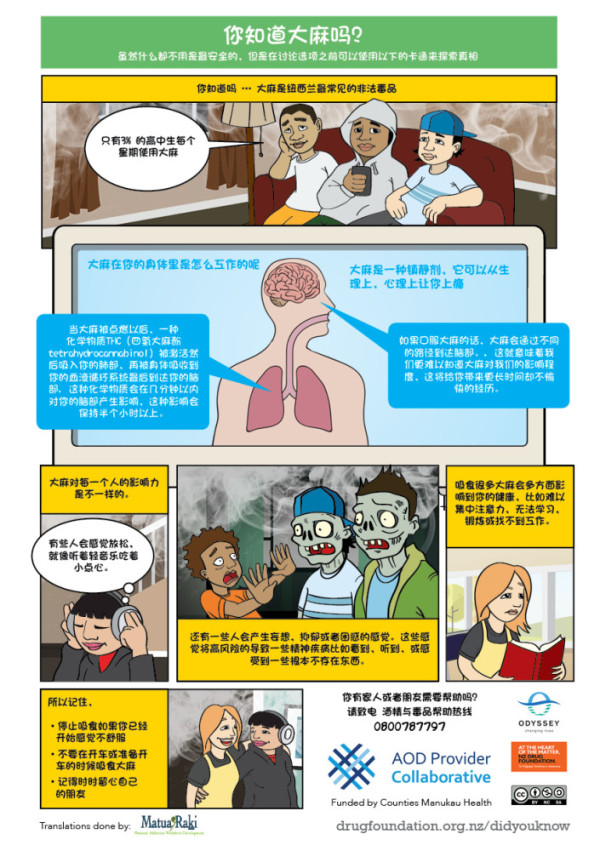This video about cannabis is for New Zealand parents, caregivers, whānau and those working with young people to understand basic facts about cannabis use. Don't stop here, start a conversation.
Did you know that… Cannabis is New Zealand’s most popular illegal drug, but only 3% of secondary school students say they use it on a weekly basis.
When Cannabis is smoked the active chemical THC goes into the lungs, is absorbed into the bloodstream and carried to the brain. The effects start within minutes and can last for half an hour or more. Cannabis is taken to the brain in a different way when eaten. This means it can be harder to know how strong the effects will be, and the effects can last for longer, which can be an unpleasant experience. Cannabis is a depressant and can be physically and psychologically addictive.
Cannabis affects different people in different ways. Some people feel relaxed, like listening to Bob Marley and get the munchies. Others can feel paranoid, depressed and confused, with a higher risk of triggering mental illness and seeing, hearing or feeling things that aren’t there.
Smoking a lot of Cannabis can affect your health, make it harder to concentrate, learn, play sports or find work.
So, remember to:
- Stop if you start to feel unwell or uncomfortable
- Don’t smoke and drive
- Always look out for your mates
Did you know...
Cannabis affects developing brains more than adult brains? During a person’s teenage years, their brain is developing and molding, therefore, it is best to avoid using a lot of cannabis or using it regularly for a long time. A lot of cannabis use as a teenager can increase problems from anxiety and it can also affect their memory and attention.
While cannabis is the most common illegal drug tried, it is uncommon for teenagers to use it regularly with only 3% of secondary school students saying they use it regularly.
Video
Turn on Samoan subtitles in the video at the top of the page via the closed caption (CC) menu of the YouTube player controls.
Poster

Video
Turn on Tongan subtitles in the video at the top of the page via the closed caption (CC) menu of the YouTube player controls.
Poster

Resources
Request printed posters in any language on our Resources website.
This includes the complete Did You Know Conversation Guide which you can also view and download right now: A guide to conversations with young people about drugs and alcohol (PDF, 2.7 MB).
About Did You Know
These tools and resources were initiated by the Counties Manukau AOD Provider Collaborative and the New Zealand Drug Foundation with support from Odyssey. Expert advice and participation from young people were used in their development. Creative by Mohawk Media.

Did You Know is licensed under a Creative Commons Attribution-NonCommercial 4.0 International License.





